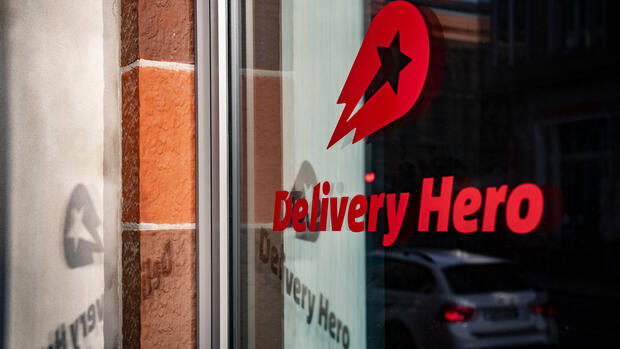According to a study, a particularly large number of new start-ups have emerged from the Berlin food delivery service.
(Photo: dpa)
Berlin Make 165 out of 25: That’s a calculation that works out in Berlin. From 25 start-ups in the capital worth billions, 165 more young companies have now emerged. This is the result of a survey by the data service Dealroom and the investor Accel, which is exclusively available to the Handelsblatt.
At the age of 32, the global food delivery service Delivery Hero produced the most. This puts the group among the top in Europe. Only the music streaming service Spotify from Sweden has also produced 32 start-ups.
“It feels fantastic that we paved the way for all these start-ups,” says Delivery Hero boss Niklas Östberg, who co-founded the company himself in 2011, to the Handelsblatt. That speaks for the spirit of innovation and the passion that prevails in the company.
Julian Teicke, head of the insurance start-up Wefox, sees it similarly. “For me, there is almost nothing more beautiful and fulfilling in my everyday entrepreneurial life than when an employee resigns from us to start their own company,” he says. This has now happened twelve times at Wefox.
Experienced founders and employees are in demand, especially in the current difficult times for start-ups, in which many are fighting for fresh money and have to prove themselves on the market. “For a long time, this knowledge was only available in Silicon Valley. But now all of Europe has specialists who are not doing all this for the first time,” says Accel partner Harry Nelis, who is known in Germany for investments in start-ups such as Personio and Celonis.
In Munich, where both companies are based, a total of 28 young companies have developed from the six billion-dollar start-ups that have emerged there over the past few years. On average, their founders are not only more experienced, but also older and better educated, as the survey shows.
>> Read more here: Bucking the trend – climate start-ups collect record sums
According to Nelis, the experience gained brings “dramatic benefits” in crises: “Things get easier the second, third or fourth time you do them.”
Paypal mafia in Europe too?
In Silicon Valley, the “Paypal Mafia” has become the epitome of a successful founding forge. Founders and first employees of the payment service such as Elon Musk and Peter Thiel have started well-known companies worldwide. These include Tesla, SpaceX, LinkedIn or Palantir.
Successes of this magnitude are not likely to be achieved in Europe, at least in the short term. In the crisis, there are no IPOs that bring enough money back into the ecosystem. In addition to the turnaround in interest rates, which is also making other investments attractive, the lack of stock market debuts is one of the main reasons why things are looking so poor on the financing market at the moment.
>> Read more here: After downsizing and losing unicorn status, Voi is now ready for consolidation
According to the Pitchbook data service, a total of 11.8 billion euros was invested in European start-ups from January to March. That is 32 percent less than in the same period last year.
In the competition for the favor of investors, founders can score points above all if they already have experience – preferably through their time with a unicorn, i.e. a start-up valued at more than one billion dollars. According to Accel partner Nelis, the expertise gained there inspires trust and puts them in a better position to access venture capital.
In Germany, 60 percent of the founders who previously worked for unicorns successfully raised venture capital. This average is significantly higher than for other founders.
Nelis is confident that the German billion-dollar start-ups “continue to form the basis for a strong start-up ecosystem in Germany and beyond and put the industry in a stronger position than it was in the financial crisis”. This is supported by the fact that, despite the declining number of start-ups, more and more companies are being founded by former Einhorn employees. The numbers increased from 35 in 2020 to 45 in 2021 and 56 in 2022. ´
More: Greenhouse start-up Infarm continues to shrink and leaves Europe

